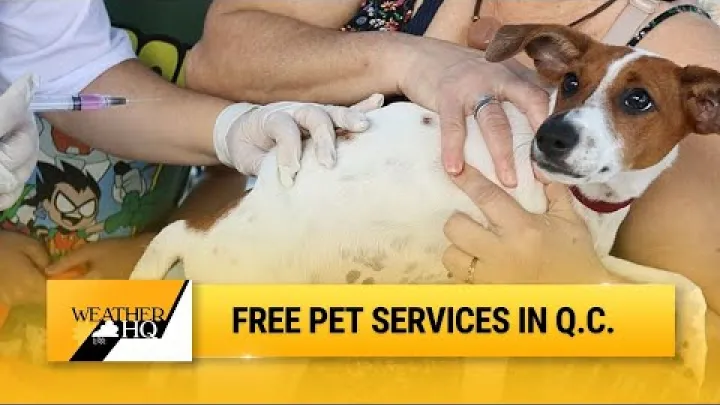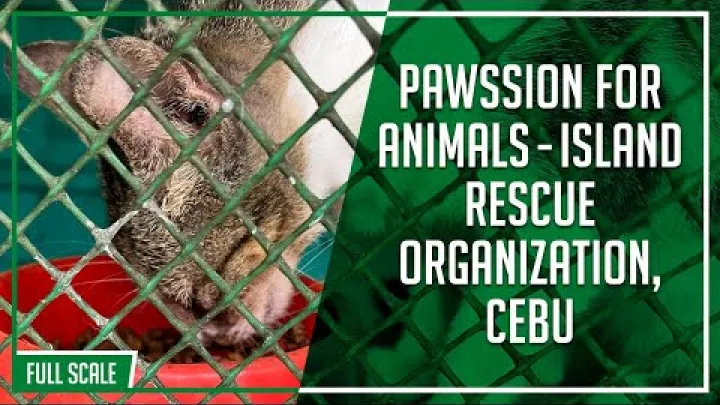Philippines Pet Guide: Essential Information, Laws, and Living Tips
Introduction to Pet Ownership in the Philippines
The Philippines is a vibrant country with a growing pet culture, where animals are often considered integral members of the family. As of today, pet ownership in the Philippines is one of the highest in Asia, with a significant number of households welcoming pets into their homes. This trend not only highlights the strong bond between Filipinos and their pets but also points to a dynamic pet industry and evolving cultural attitudes towards animals.
Pet ownership in the Philippines extends beyond companionship. It includes a robust framework of laws and regulations designed to ensure the welfare and protection of animals. Understanding these laws, along with identifying popular pet breeds and navigating pet services, is crucial for any current or prospective pet owner in the Philippines.
Popular Pets and Indigenous Breeds
Top Dog Breeds in the Philippines
Dogs are undoubtedly the most favored pets among Filipinos, with many gravitating towards specific breeds due to their unique characteristics and adaptability to local living conditions. The Asong Pinoy, or Aspin, is a popular indigenous breed known for its loyalty and intelligence. Although these dogs are often seen as street dogs, they have gained appreciation for their resilience and compatibility with Filipino families.
Other favored breeds include the Shih Tzu, Chihuahua, and Labrador Retriever, each preferred for their distinct traits that suit urban lifestyles. Siberian Huskies and Golden Retrievers also enjoy popularity, although they require more attention due to their size and energy levels. Selecting a pet in the Philippines often depends on factors such as living space, grooming needs, and the animal's temperament.
Indigenous Philippine Animals and Domestication
Besides popular international breeds, the Philippines is home to indigenous animals such as the Philippine Forest Dog, often referred to as the "Asong Gubat." Known for their climbing abilities and adaptability to forest environments, these dogs exemplify the unique biodiversity found within the country. Native breeds like these are celebrated for their survival instincts and symbolism in local folklore.
Animal domestication in the Philippines has a rich history, with early records indicating that pigs, water buffalo, and dogs were among the first animals domesticated by ancient Filipinos. These animals have historically been integral to cultural practices and agricultural activities, underlining the important role animals have played in shaping Filipino society.
Pet Laws and Regulations in the Philippines
Animal Welfare Act and Other Key Legislation
The Animal Welfare Act of 1998 serves as the cornerstone of animal protection laws in the Philippines. This legislation prohibits the maltreatment and abuse of animals, mandating proper care and ensuring that pets receive adequate food, shelter, and medical attention. An amendment in 2013 further strengthened these provisions, imposing stricter penalties for violations.
In addition to the comprehensive Animal Welfare Act, the Anti-Rabies Act of 2007 is crucial in addressing public health concerns. This law requires mandatory rabies vaccinations and the secure containment of pets, reflecting an ongoing commitment to safeguard both animals and humans.
Local Ordinances and Compliance
Local governments across the Philippines supplement national laws with specific ordinances tailored to address community needs. For instance, Mandaluyong City enforces a "four-dog" rule per household to prevent overcrowding, while Quezon City's updated Veterinary Code outlines precise requirements for pet owners. Adhering to these local regulations is essential for pet owners to avoid penalties and ensure their pets live harmoniously within the community.
Pet ownership in the Philippines also involves understanding compliance with these laws and ordinances. Responsible pet ownership means fulfilling legal obligations, such as regular vaccinations, leash laws, and waste management, fostering a cooperative relationship between pet owners and society.
Pet Care and Veterinary Services
Veterinary Care Costs and Services
The cost of veterinary care in the Philippines varies, influenced by the type of service and the veterinarian's expertise. Routine check-ups can range from PHP 250 to PHP 1,000, while vaccinations might cost between PHP 500 and PHP 2,500 per shot. Neutering or spaying could range from PHP 2,000 to PHP 6,000, reflecting the complexity of the procedure.
Beyond routine medical care, Filipino pet owners often explore specialized treatments and wellness checks. Pet insurances are gaining interest as they can help manage unexpected expenses and provide peace of mind. With numerous clinics available, finding the right fit depends on the pet's specific health needs and the owner's budget considerations.
Pet Grooming and Boarding Options
Grooming services in the Philippines are widely accessible, ranging from basic mobile groomers to luxurious pet spas. Regular grooming not only helps maintain a pet's appearance but is also important for their health and hygiene. Grooming costs vary based on the services provided, with basic sessions starting around PHP 500.
For pet owners who travel frequently, boarding facilities and pet daycare centers offer reliable options for pet care in their absence. These establishments ensure pets are well cared for, with many offering additional services like playtime and basic training, further emphasizing a commitment to the animals' well-being while their owners are away.
Pet Adoption and Rescue Organizations
Adoption Process and Requirements
Adopting a pet in the Philippines is a rewarding experience, guided by a structured process that ensures the welfare of both the pet and the adopting family. Prospective adopters typically begin by submitting an application followed by an interview. Visits to meet and interact with the pet at the shelter are encouraged to establish a bond before the pet is taken home.
Adopters may need to pay a nominal fee, which covers initial veterinary expenses and helps support the shelter's ongoing operations. Ensuring a supportive environment is crucial, as is the adopters' commitment to providing a loving, responsible home conducive to the pet's health and happiness.
Major Rescue Organizations in the Philippines
Several key organizations lead animal rescue and adoption efforts in the Philippines. The Philippine Animal Welfare Society (PAWS) and Compassion and Responsibility for Animals (CARA) are among the prominent groups, each playing significant roles in promoting adoption and preventing cruelty.
These organizations not only provide shelter and medical care to rescued animals but also engage in awareness campaigns to educate the public about responsible pet ownership. Volunteering and donations are encouraged as ways to support these groups and make a meaningful impact on animal welfare in the Philippines.
Traveling with Pets in the Philippines
Pet Import Permits and Requirements
Bringing pets into the Philippines requires meticulous planning and adherence to specific regulations. Pets must be equipped with a microchip compliant with international standards and vaccinated against rabies at least 30 days before entry. A Sanitary and Phytosanitary Import Clearance is also necessary, obtainable from the country's Bureau of Animal Industry.
The preparation for pet importation doesn't end at documentation; it involves parasite treatments and acquiring a health certificate from a licensed veterinarian. Understanding these requirements ensures a smooth process and helps avoid potential quarantine or re-entry issues.
Philippine Airlines Pet Policy and Travel Tips
Philippine Airlines accommodates pet travel within certain guidelines, ensuring the safety and comfort of animal passengers. It is recommended that pet owners contact the airline ahead of time to discuss requirements such as crate specifications and applicable fees. Following airline protocols helps ensure a seamless journey for both the pet and owner.
Travelers should also consider the potential stress of travel on their pets and prepare accordingly. This includes familiarizing their pets with travel crates prior to the flight and ensuring they are well hydrated. These precautions contribute to a more pleasant and stress-free travel experience for all parties involved.
Evolving Pet Culture in the Philippines
Pet Humanization Trend
The trend of pet humanization is increasingly evident in the Philippines, where pets are viewed as integral family members. This shift has influenced various lifestyle changes, with pets increasingly considered in family decisions, from relocating to dietary choices. The close bond between Filipinos and their pets underscores the importance of considering their well-being in all aspects of daily life.
This trend is also reflected in the burgeoning market for pet-related goods and services. From gourmet pet foods to luxury pet accessories, the demand for premium offerings continues to rise, demonstrating the commitment of pet owners to provide a high quality of life for their animal companions.
Pet-Friendly Initiatives and Events
Many businesses and public spaces in the Philippines are becoming increasingly pet-friendly, reflecting broader societal trends. Malls now feature pet zones, and accommodations often include pet-friendly amenities, recognizing the growing importance of pets in people's lives. These changes are warmly welcomed by pet owners seeking to integrate their animals into all aspects of public life.
Pet-centered events, such as the Philippine Pet Expo and various local festivals, provide opportunities for pet lovers to gather, share experiences, and learn about new pet care innovations. These events foster a sense of community, bringing together like-minded individuals and encouraging responsible pet ownership across the nation.
Challenges in Philippine Pet Ownership
Stray Animal Population
The Philippines faces a significant challenge with its stray animal population, notably among dogs. With millions of stray dogs wandering the streets, managing this population requires comprehensive solutions. Many non-profit organizations are taking strides to address this issue by promoting adoption and conducting spay/neuter drives.
Public awareness campaigns are vital to changing perceptions and encouraging responsible pet ownership, which can, in turn, help reduce the stray animal numbers. Education on the importance of spaying/neutering and responsible care are essential components of long-term population control strategies.
Controversial Practices and Solutions
Despite progress in animal welfare, certain controversial practices persist, posing challenges to ethical pet ownership. The dog meat trade, although declining, remains a sensitive issue in some areas, drawing criticism from animal rights groups. Additionally, practices like caging dogs around the clock are subjects of ongoing debate regarding animal rights and welfare.
Solutions to these challenges require collaboration between lawmakers, animal welfare organizations, and the public. Legislating stricter penalties for animal cruelty and raising awareness of ethical treatment can pave the way for cultural shifts that prioritize the welfare of pets and stray animals alike.
Frequently Asked Questions
What are the requirements for importing pets to the Philippines?
To import pets into the Philippines, owners need an import permit, rabies vaccination, and a compliant microchip, along with a health certificate and parasite treatments.
How can I adopt a pet in the Philippines?
The adoption process typically involves filling out an application, undergoing an interview, visiting the shelter, and paying an adoption fee. Ensuring you meet shelter requirements is key.
What are the pet laws in the Philippines?
The Animal Welfare Act prohibits cruelty to animals and mandates proper care. The Anti-Rabies Act requires rabies vaccinations and secure containment of pets.
Which dog breeds are popular in the Philippines?
Popular dog breeds include the Aspin, Shih Tzu, Siberian Husky, and Labrador Retriever, chosen for their adaptability and distinct traits.
How much does veterinary care cost in the Philippines?
Veterinary care costs vary, with routine check-ups ranging from PHP 250 to PHP 1,000 and vaccinations costing between PHP 500 and PHP 2,500 per shot.
Conclusion
The evolving landscape of pet ownership in the Philippines highlights the deepening bond between humans and their animal companions. There is a broad spectrum of breeds popular among pet lovers and a strong legal framework ensuring animal welfare. While challenges remain—such as managing the stray population and tackling controversial practices—progress continues with increased awareness and cultural shifts.
As pets become increasingly woven into family life, the opportunities for enhanced welfare and responsible ownership expand. By navigating the realm of pet laws and services thoughtfully, Filipinos are setting the stage for a future where pets continue to thrive as cherished members of society.
Your Nearby Location
Your Favorite
Post content
All posting is Free of charge and registration is Not required.






